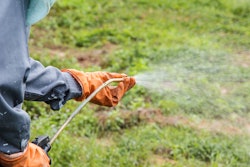
The consumer journey is not as straightforward as it once was, with a considerable increase in touch points between an individual first discovering your business to finally making a purchase.
“Consumer touch points can be anywhere,” says Mike Tinz, VP of franchise training for Money Mailer. “As an example, if you’re looking at an acquisition vehicle, such as direct mail, you know that that’s a single touch point right there. If a consumer looks at a direct mail product and they go, ‘Oh, I like this idea. I like this landscape business,’ What is the next step that they’re going to take? Generally, what they’re going to do is they’re going to research the company.”
Some of the possible next steps the homeowner might take is searching landscaping in general, looking up that particular landscaping business’s website, looking for reviews on Yelp and researching the offer further before moving forward to make a purchase.
“Today they’re doing more research,” Tinz says. “They’re doing more homework because they want to make sure that the business that they’re working with is trustworthy and they have a good reputation.”
When you think about marketing, you may only be considering your digital channels, but Tinz stresses that landscapers shouldn’t forget about their print options, like direct mail.
“Direct mail is a very key part of acquisition referral to get that consumer buying, to trigger them to start to look at something or to purchase something,” he says.
Why direct mail is still viable?
 Photo: Money Mailer
Photo: Money MailerTinz admits that there is a perception that direct mail isn’t worth a landscaping company’s time, but he says there are case studies where businesses have dropped or reduced their direct mail campaigns and it has had a direct impact on their business.
“Because they didn’t use an acquisition type tool, it didn’t get their name out there in front of new consumers to get them to go through buying process,” he says.
Tinz argues that while you may have a great website, how will a homeowner know to Google your business if they’ve never heard of you in the first place?
“You have to have those trigger or touch points,” he says. “Those types of vehicles are very important in the media mix for any business today.”
How to get the most out of direct mail
If you do decide to try direct mailings out, it’s important to do it the right way or odds are you won’t receive the return on investment you’re looking for.
There are several different factors that come into play when it comes to getting the most out of a direct mail campaign. According to Tinz, one of the main ways to keep your mailer from being tossed out like any old junk mail is targeting the right audience.
“Consumers have to be ready, willing and able to buy,” he says. “It’s an affordable way to target affluent homeowners with higher disposable incomes. It helps introduce consumers to their business.”
 Photo: Money Mailer
Photo: Money MailerAside from just mailing to the right potential customers, landscapers have to find the right volume and frequency of mailers in order to build trust with the consumer and stay top of mind when they are ready to purchase. Tinz says for a landscaping company, they should be sending mail to households at least six to eight times a year.
“The more they do that, the better,” he says. “If they want to try something once, save your money. That won’t work.”
Tinz says it is important to research direct mail companies to identify which business will be able to reach the right demographics for your landscaping operation.
As for the design of the direct mail, there are three main important elements. The first is having a headline that has a consumer benefit to drive interest. The second is having an illustration that allows the homeowner to quickly identify your services.
“When a consumer looks at any kind of direct mail ad, you’re only going to have a few seconds for them to identify with who it is, the benefit of what it is and see the offers to trigger response,” Tinz says. “So, you want to make sure that you have an illustration so they can identify with it.”
 Photo: Money Mailer
Photo: Money MailerThe third element is having broad based offers. Using multiple offers that appeal to different consumers will also help trigger a response. Tinz adds that the fewer offers you have, the fewer opportunities you have to sell somebody. He encourages offering discounts on services that can turn into repeat business so there is a higher return on the advertisement.
“Always try to use dollar savings versus percentages because it’s going to make it easier for the consumer to understand the value,” he says.
Tinz also suggests using offers that focus on specific times of the year and that match consumer behaviors.
“Seasonality is also important for landscapers depending on the market,” Tinz says. “Make sure, again, that you’re focusing on the right offers and advertising illustration, which is going to entice the consumer to act on your ad, and it will drive interest to purchase. Those are really key things.”
Tinz stresses that the offer must be attractive enough to trigger a response. Having weak offers or none at all on a direct mail piece will not be worth your time or money.
“I would never recommend that you run an ad without an offer,” he says. “Because, again, in the direct mail industry, consumers are looking for values and savings.”
When combined together, the headline is what will draw the consumer in, the illustration is what will get them to identify with the business and the offer is what will get them to respond.
“Anytime you’re dealing with any type of advertising, you have to keep the consumer in mind,” Tinz says. “You have to keep the type of consumer in mind, you have to have offers that are relevant that are going to get them to say, ‘You know what, I think I’m going to give this company a call,’ or ‘You know, I’m interested in buying their products,’ or ‘I think they have something that I might want.’”
Call to actions that can be included as well on a direct mail piece are expiration dates on the offer or the next step the consumer needs to take.
“I would highly recommend telling the consumer what to do,” Tinz says. “Call now, call this number now, call today. Go online at…so you have to direct the consumer to do something.”
 Photo: Money Mailer
Photo: Money MailerWhen it comes to tracking the effectiveness of your direct mail campaign, Tinz advises having different offers online versus what a consumer might see in print so the landscaper can identify where the touch point started.
“In today’s environment, the trigger points to get a consumer interested need to be tracked and credited from all sources of media to ensure you clearly understand where the first touch point came from,” he says.
Tinz says it’s a good idea to have offers online as well since you never know where a customer is going to have their first touch point.
“If there’s 35 touch points today, they may have gotten a referral from a friend, right?” Tinz says. “And they went on to the website and you want to have enticing offers. But if you have the same offers, they’re not going to be able to track what media source it came from. So, I would always make sure that anytime you’re using multiple media sources, try to switch up your offers on each one you can look at where they have come from.”
“When a business buys their campaign correctly, their response can be great,” he says. “If they’re not willing to invest correctly, it will not work well for them.”









